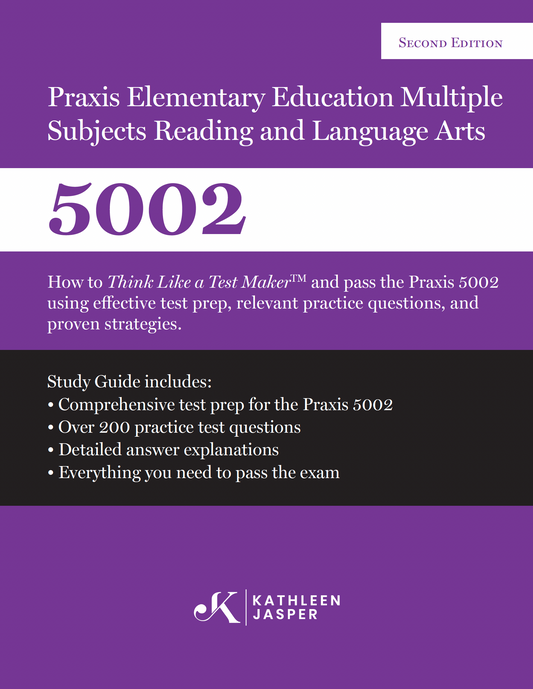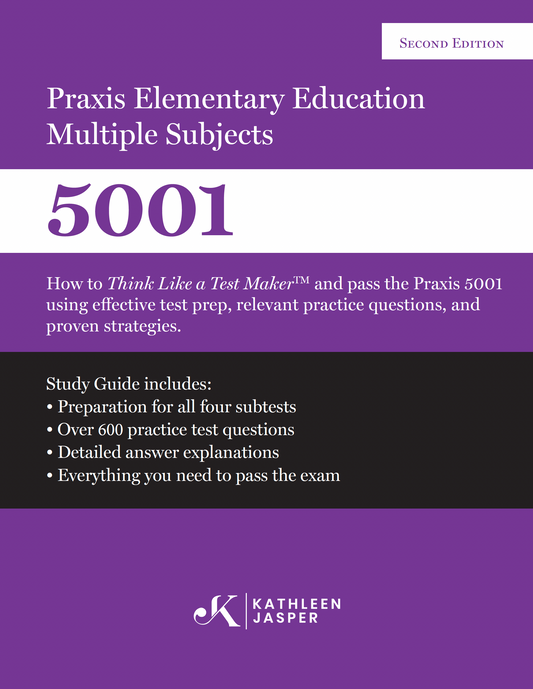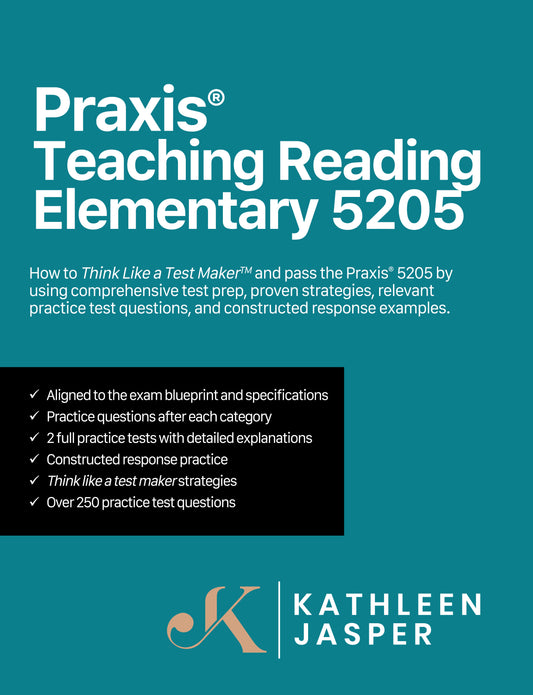The path to becoming an elementary school teacher is paved with passion, dedication, and a crucial step known as the Praxis exam. At kienhoc.vn, we understand that aspiring educators often have questions about the difficulty of this exam. This article will delve into the factors that contribute to the challenge of the how hard is the praxis for elementary education, offering insights and strategies to help you navigate this important milestone in your teaching journey.
1. Understanding the Praxis Elementary Education Exam
What is the Praxis?
Imagine you’re getting ready for a big adventure – becoming a teacher! The Praxis Elementary Education exam is like a map that helps you get there. It’s a test that checks if you have the knowledge and skills to teach young learners. It’s like a super important test that helps you get your teacher license.
Different Types of Praxis Tests
There are different types of Praxis tests, just like there are different kinds of teachers. Some tests focus on specific subjects, like math or science, while others are more general, covering things like teaching methods and child development. It’s important to know which test you need to take based on what you want to teach and where you want to teach it.
Think of it like choosing the right tool for the job. If you want to be a builder, you need a hammer. If you want to be a chef, you need a whisk. And if you want to be an elementary school teacher, you might need the Praxis Core Academic Skills for Educators tests, which cover reading, writing, and math skills.
| Praxis Test | What It Covers |
|---|---|
| Praxis Core Academic Skills for Educators | Reading, writing, and math skills |
| Praxis Subject Assessments | Specific subjects like math, science, or social studies |
| Praxis Principles of Learning and Teaching (PLT) | Teaching methods and child development |

2. Factors Influencing Praxis Difficulty
Your Background and Skills
The Praxis can feel like a different challenge for everyone. If you’re a whiz at reading, writing, and math, the test might seem easier. But if those subjects weren’t your favorites in school, you might need to study a bit more. It’s like preparing for a race – some people are natural runners, while others need to train harder.
Your experience with tests also matters. If you’re a cool cucumber during exams, the Praxis might not feel so scary. But if tests make you nervous, don’t worry! There are ways to practice and feel more confident.
The Specific Praxis Test You Take
Remember those different types of Praxis tests we talked about? Well, some are trickier than others. The Praxis Core Academic Skills for Educators tests are usually considered the easiest because they cover basic skills. The Praxis Subject Assessments can be tougher because they go deeper into specific subjects. And the Praxis Principles of Learning and Teaching (PLT) tests focus on teaching methods and child development, which can be challenging if you’re new to education.
It’s like choosing a level in a video game. The first level is usually easier, while the later levels get harder. So, the specific Praxis test you take will determine how difficult it feels.
| Factor | How It Affects Difficulty |
|---|---|
| Your background in reading, writing, and math | Stronger skills make the test easier. |
| Your test-taking experience | More experience can reduce anxiety. |
| The specific Praxis test you choose | Some tests are more challenging than others. |

3. Tips for Praxis Preparation
Get to Know the Test
Before you start studying, it’s important to know what you’re up against. Think of it like scouting the enemy’s base before a big battle. You need to know what’s on the test, how it’s scored, and what kinds of questions they ask. The Educational Testing Service (ETS) website has all the information you need, including practice questions and study guides. It’s like having a secret weapon in your arsenal!
Make a Study Plan
Now that you know what to expect, it’s time to make a plan. Think of it like planning a road trip – you need to know where you’re going and how you’re going to get there. Decide how much time you have to study and break down the material into manageable chunks. You can use flashcards, study apps, or even create your own quizzes to test your knowledge. Don’t forget to schedule breaks so you don’t get overwhelmed. Remember, slow and steady wins the race!
- Elementary Education Degree Programs
- Elementary Education Degree Requirements

4. Alternatives to the Praxis
State-Specific Assessments
Some states have their own tests for teachers, like a special secret handshake. These tests might focus on the specific things teachers need to know in that state, like the history of the state or the types of plants and animals that live there. It’s like a local test that helps make sure teachers are ready for the classrooms in their area.
Portfolio Assessments
Instead of taking a big test, some places let teachers show what they can do with a portfolio. It’s like a scrapbook of all the awesome things you’ve done as a teacher, like lesson plans you’ve created, projects your students have worked on, and letters from parents saying how great you are. It’s a way to show off your teaching skills in a more creative way.
| Alternative | Description |
|---|---|
| State-specific assessments | Tests designed by individual states to assess teaching skills. |
| Portfolio assessments | Collections of work showcasing teaching abilities and experience. |
National Board Certification
For teachers who want to level up, there’s something called National Board Certification. It’s like getting a black belt in teaching! It’s a really tough process that involves taking tests, writing about your teaching, and even having someone come watch you teach. But if you pass, it shows that you’re a super-duper teacher.
Alternative Teacher Certification Programs
If you already have a college degree in something else, like art or science, there are special programs that can help you become a teacher. These programs usually involve taking some education classes and doing some student teaching. It’s like a shortcut to becoming a teacher if you already have some of the skills you need. Check out our articles about Elementary Education Degree Programs and Elementary Education Degree Requirements to learn more.
- National Board Certification
- Alternative Teacher Certification Programs

Final Thought
The Praxis Elementary Education exam is undoubtedly a significant hurdle, but it’s not an insurmountable one. With thorough preparation, a strategic approach, and a positive mindset, you can confidently tackle the exam and embark on your fulfilling career as an elementary school teacher. Remember, there are also alternative pathways available if the Praxis doesn’t align with your strengths or circumstances. The key is to stay informed, explore your options, and pursue your teaching aspirations with unwavering determination.



